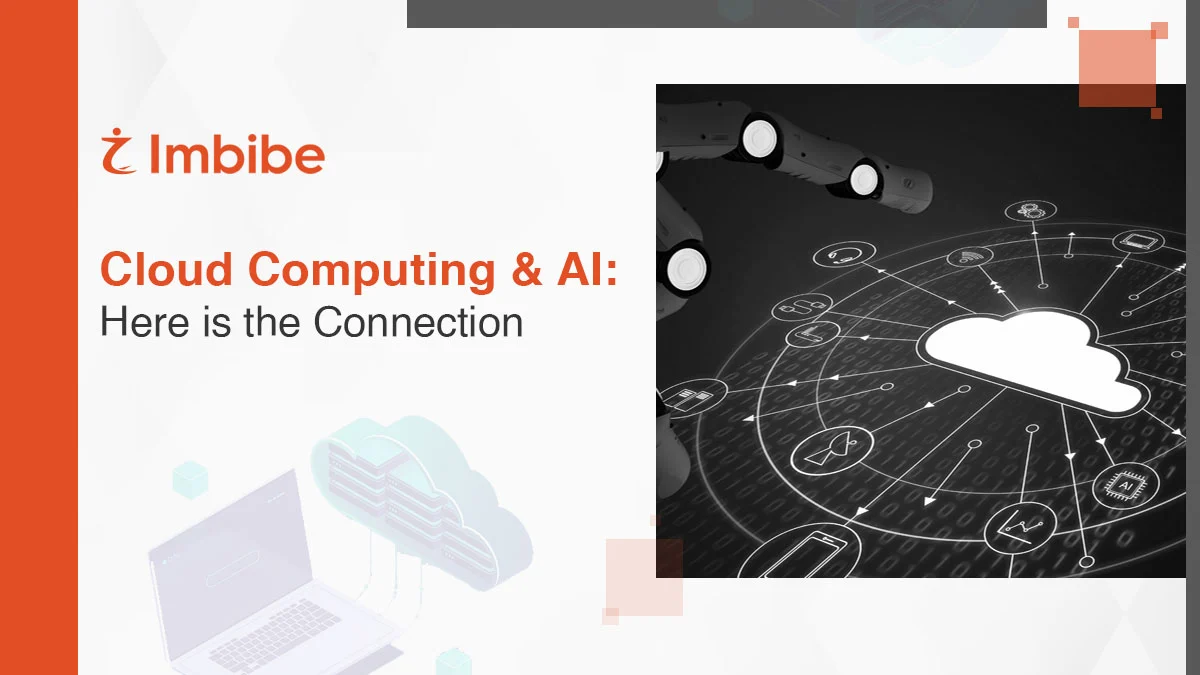Cloud computing has been part of the IT landscape for a quite long time providing scalability, flexibility, and cost-efficiency to businesses. And now that AI has made its way to the mainstream, people are now excited to know how cloud computing is going to imbibe AI and transform the tech world.
How Is AI Used in Cloud Computing?
AI is a branch of computer science that deals with making computers intelligent by writing algorithms with human-like characteristics like learning and problem-solving. AI helps develop self-learning systems that can learn from experience without requiring human intervention or programming effort.
This combination of AI and cloud technologies has been used in many domains, such as self-driving cars, intelligent data management, medical diagnosis, natural language processing, and speech recognition.

Cloud AI is going to take over the tech world very soon or is it already taking over? It is yet to be seen, but one thing we are sure about is that the next decade is going to be technologically transformative thanks to AI.
You don’t believe us? Let us show you some mind-boggling data!
According to a report by Statista, the nearly 100 billion U.S. dollar market of AI is expected to grow twentyfold by 2030, up to nearly two trillion U.S. dollars.
And as for Cloud AI, the global market size was valued at USD 44.97 billion in 2022 and is estimated to grow at a compound annual growth rate (CAGR) of 39.6% from 2023 to 2030.
Today in this article we will discuss:
Connection, the Role, and Advantages of Deploying AI in Cloud Environments
Scalability
Cloud environments provide the scalability needed to handle the computational requirements of AI algorithms. AI workloads often require substantial computational resources, and cloud platforms can quickly provision and allocate resources as needed, enabling efficient processing of large datasets and complex AI models.
Flexibility
Cloud offer flexibility in terms of infrastructure, software, and services. AI applications may require specific frameworks, libraries, or specialized hardware, and cloud applications provide a range of options to support diverse AI requirements. It allows organizations to experiment, deploy, and scale AI models with ease.
Effectiveness & Efficiency
AI with the cloud computing can make your products more efficient and effective, which will increase sales and improve customer satisfaction. For example, if you’re a retailer selling products online. Then, you would be able to find out what the best-selling items are based on past purchases, and then recommend those items to other customers who made similar purchases. A subscription service could even send these items automatically each month to customers.
Accessibility
Cloud-based AI services and tools are readily accessible to developers, data scientists, and organizations of all sizes. Cloud platforms provide user-friendly interfaces, pre-configured AI frameworks, and pre-trained models that simplify AI development and deployment. This accessibility lowers the barrier to entry and democratizes AI adoption.
High Availability and Reliability
The infrastructure provided by cloud providers is robust and reliable. Cloud environments provide greater resilience, giving AI applications reliability and minimizing downtime. For critical AI workloads, the ability to continuously function and react quickly is crucial.
We hope this article might help you understand evolving trajectory of AI and how AI with the cloud can revolutionize business operations.
We at Imbibe always strive to keep up with the latest trends and developments. Get in touch with us if you are looking for the best cloud computing services because we know how to do things right.